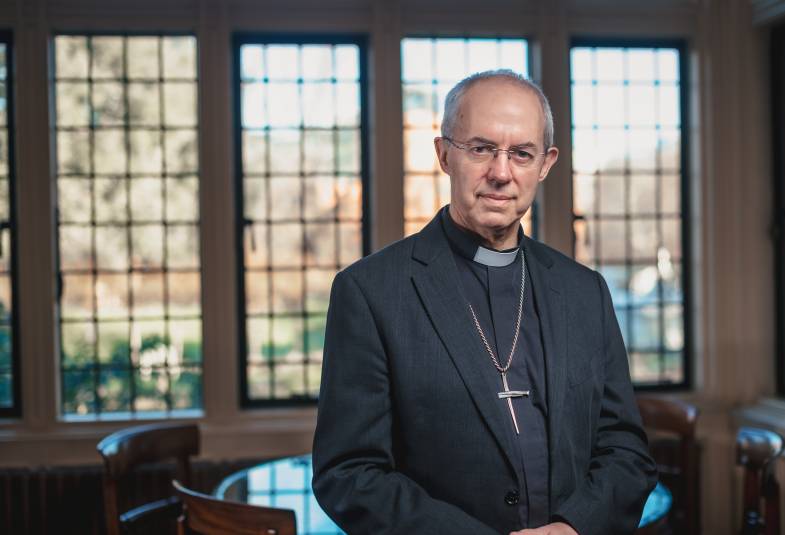09/10/2023
The Archbishop of Canterbury called for greater financial inclusion in a speech at London Scottish House this evening. Archbishop Justin was hosting the Lord Mayor of the City of London, Alderman Nicholas Lyons, and the Lady Mayoress, Felicity Lyons, for the annual dinner in their honour.

Read the speech as prepared for delivery:
My Lord Mayor, Lady Mayoress, Sir Douglas, Ladies and Gentlemen.
I’m truly delighted that you have all joined us this evening.
I have seen, not just here in England, but across the Anglican Communion, just how important it is to have access to financial services. In Africa, where millions do not have access to a bank account, a service called M-PESA has developed a system whereby people can transfer money through their phones. It’s given more than 51 million people a way to receive money, pay their bills, and get small loans for their businesses. It’s transformed financial inclusion in the Global South, and its transformed the opportunities people have, their livelihoods and their communities.
That is what financial literacy and inclusion really does: it makes it possible for each of us to play our role in society. And returning to this country, those who are excluded from our financial systems are also often those who are excluded in society: the homeless. Refugees and migrants. People unable to collect benefits, or unable to build credit scores and so fall victim to loan sharks which only leads to greater financial distress and stress. It leads to poverty. It leads to isolation and humiliation. It removes all possibility of resilience and dignity.
At a Christians Against Poverty event in Market Drayton just a few weeks ago I saw for myself this sense of shame, of being excluded, that poverty, financial exclusion and poor financial literary creates.
And in Philadelphia, a couple of months ago, I saw the worst human degradation I have seen in a wealthy economy. In a rich city, in a borough ironically called Kensington, people are hunched over themselves from the effects of drug abuse. Children walk to school past the bodies of those who have died.
A man called Shane Claiborne there runs something called the Community of the Simple Way. They do many things, from melting down guns into crosses - like the one I’m wearing tonight - to offering houses at low cost to people on low incomes, teaching them how to manage home ownership finances and budgets and renovate their homes. Their work builds resilience – in relationships, housing and financially – amongst the most fragile individuals and communities.
Financial literacy is an essential, but we all know even the most financially literate also get things wrong. And that’s often most disastrous for those who are not to blame and have the least resilience. We saw that in the great recession.
Throughout the Bible, issues of debt and finance are at the centre of Jewish and Christian thinking. Money is so often a proxy for relationship – taxes, for example, are one of the strongests way we express our common values and commitment to one another as a society. But debt binds us, it enslaves us to other people. It creates relationships of obligation which are sometimes a good thing – a loan for a small business for example - but which can sometimes suffocate those who are already suffering.
The Bible introduces the idea of jubilee – a year when relationships are reset. Land is allowed to rest. The enslaved are freed. Debts are forgiven. And what that does is give people a chance to recover their identity, to build resilience.
How do we free those who are enslaved today, by financial exclusion and illiteracy? Where do we find forgiveness for debts, including debts of mistake? How do we allow our resources to rest, and give people the chance to be resilient? How can we be a people with a new identity, a people of jubilee?
This is not about artificially propping up lame ducks, zombie companies or zombie banks, battling against market forces to make things work where there is no demand and little supply. Our theology is about ensuring the casualties are not abandoned, because we know even the most resilient can fail.
Financial literacy is, as we always know, community as well as individual. Sir Douglas Flint will be able to tell us more about the Just Finance Foundation, and the work they are doing with communities, and in schools, to build those financially resilient communities. One thing he will know is that community and forgiveness together wipe away the shame that so often comes with financial breakdown. Transparency becomes the antidote to shame, rather than the accusation, when we are part of loving communities.
The Lord Mayor is issuing a call I wholeheartedly support tonight. Improving financial inclusion so people can borrow and save money at fair rates, improving financial literacy so young people in particular can have confidence in their individual finances that brings them fully into civic life. There is a lot for the government and the financial services sector to do.
The Church stands fully behind this work. Because Jesus who came to liberate us - and whose grace can never be earnt but is poured out among us unconditionally - is the Christ who tells each of us we are worthy, precious and loved. And because of that, we are called to be a people of justice, a people of forgiveness and mercy, because we have been released from bondage and from sin, so that we might be restored to right relationships with each other and with the Father who loves us more than any price.
So, ladies and gentlemen, you are now - finally - free to ignore the Archbishop of Canterbury and have a good evening. But first, please do join me in a toast: to the Lord Mayor and the City of London Corporation.